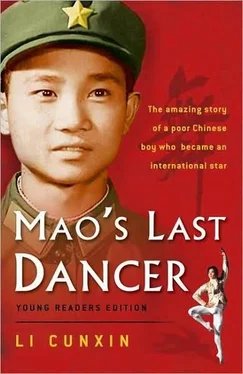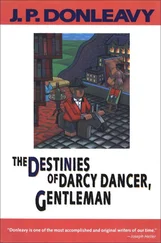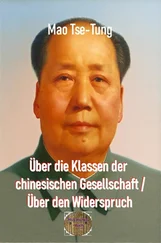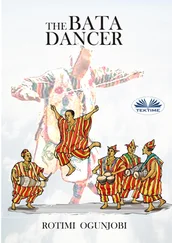We got to know my six nieces and one nephew while we were there too. There was only one boy amongst my four brothers' children. My parents would have liked more grandsons, but the one-child policy had now been strongly enforced in China. My second brother and fourth brother were the only two of my brothers classified as peasants, so only they were allowed to have a second child if their first wasn't a boy. My other brothers were salaried people and so were considered in the same way as city folk-one child only, regardless of gender.
"But what happens if you do fall pregnant with a second child?" Mary asked.
"The government will force you to have an abortion," one of my sisters-in-law replied. "Even if you run away, they will track you down, force you to have an abortion, and you'll be penalised."
Mary thought it was nothing short of barbaric.
"Mary, can you have six extra boys and give us one each?" another sister-in-law asked, and everyone laughed. Deep inside, however, I knew how they felt. Not producing a son to continue the family line was considered the worst betrayal of your ancestors. I looked at my third brother while he was cooking and I realised that what my parents had done, all those years ago, giving him to my fourth uncle who couldn't have children, was one of the greatest sacrifices they could have made. I looked at my third brother's beautiful daughter, Lulu, then looked at my nephew and my other nieces. I felt sad that they, like most of the next generation of children growing up in China, would have no brothers or sisters. We had survived through generations of dark and impoverished living because of this one strength, because of the unconditional love and unselfish care of each other within our family unit. It was all we'd had.
During our three weeks in Qingdao, Mary and I spent a day each with every one of my brothers' families. We started with my big brother Cuncia, and his wife and son, who lived in a small two- bedroom apartment provided by the Laoshan Post Office where he was now a senior manager.
Cuncia had spent over sixteen years in Tibet, one of many Red Guards who had responded to Mao's calling. He had worked hard and been promoted to the head of the Communist Youth Party in the Tibet Post Office.
It was then that my brother had met and married another native of Shandong Province, and they'd had their son. But then, in 1981, the Chinese government suddenly changed its policy towards Tibet. All Chinese living and working in Tibet were ordered to return to their home province.
Cuncia told us that he had first been promoted to the position of deputy head of the post office in a large county called Jiaoxien. He was loved and respected. But one day, in 1983, he was suddenly called into his boss's office and swiftly demoted. To his utter surprise, one of the opposition party Red Guards had become jealous of his rapid promotion and still held a grudge against him-he had lodged a complaint to the government about an incident where my brother had slapped a party leader during a heated argument at the height of the Cultural Revolution. It was an incident that had happened over twenty-five years earlier.
"I'm only one of millions of victims," my brother explained to Mary. "I am, like so many people in China, still amazed at how badly I was manipulated and betrayed by Mao and the Gang of Four. The Red Guards of yesterday were the epitome of the communist spirit. Now we are searching for answers. We have to live with our injured pride and our lost beliefs."
I felt so much sorrow for Cuncia. I knew what he said was true- he had spent the best part of his youth pursuing nothing but propaganda. But the Cultural Revolution didn't just rob him of his youth, it crushed and destroyed his spirit and his soul. His trust in his society had vanished. Even his sacred family values had been called into question by Mao and the Cultural Revolution.
The brother I became most concerned about, however, was my second brother Cunyuan. He had built himself a two-storey three-bedroom house on commune-provided land, and although his marriage wasn't his choice, he had learned to love and care for his wife and their two daughters.
Then in 1986, so he told us on the night we visited him, he was working for a lumber company and was on one of his business trips to a northern province called Dongbei. He had been walking back to his hotel when he'd found a newborn girl abandoned and crying on the roadside. There was a simple note attached to her blankets: "If my daughter has luck on her side," it read, "she will be rescued by a kind-hearted person who will love her as his or her own child. May the gods bless you-my beloved child, and bless you-the kind-hearted person." It was signed, "The child's mother."
Another abandoned, unwanted baby girl. There are many such stories from China.
Cunyuan brought this little girl home. He and his wife loved and cared for her like one of their own. Now they had three daughters. She grew up to be a beautiful girl, with a sparkling personality, and the Li family adored her. The local government at first refused to recognise her as a legitimate child, but after several years of persistence from my brother and his wife, the county officials finally allowed them to adopt her and register her as a local citizen.
I had asked my second sister-in-law to cook us some typical peasant food that night, such as dried yams and corn bread, for Mary to experience. "Brother, you've been away too long!" Cunyuan said. "Some of the food we used to hate is now back in fashion- like corn bread."
"Even dried yams?" I asked.
"Not dried yams. People feed that stuff to their dogs and even they hate it," he replied quickly.
Mary did try the dried yams that night, but I noticed she mostly ate the dumplings.
After the meal, while Mary was playing with my brother's three girls, I asked Cunyuan to show me the farmland he had been allocated by the commune. But what I really wanted was a chance to be alone with him. I remembered our heart-wrenching conversation, years ago, on the way to the train station. I eagerly wanted to know how he saw life now and I desperately hoped that he was happy.
As we walked I noticed that we were heading in the direction of our na-na's burial place. I felt a rush of shame. I hadn't visited her grave yet and promised myself that I would take Mary there the very next day.
"Here is my land." My second brother pointed to a small area, no bigger than four metres by six.
"Is this it?"
"Yes, this is ours. It is not really even ours. It's on loan from the government." He gestured for me to sit down.
I sat next to him on the edge of his precious land and looked at the layered fields in front of us.
"See those buildings over there?" Cunyuan pointed at rows of newly built ten-storey apartments on the east side of our village. "Some of our land was sold to state-owned companies to build apartments for their employees. I'm afraid I will lose even this land soon." He shook his head.
"Won't they compensate you?" I asked.
"All land belongs to the government. They can take it back any time they want to."
"Is there any kind of central planning?"
"None whatsoever. Soon we will have no land left to farm. We are forced to put our faith, and our future, in the hands of a few government officials. I'm so afraid they will swindle our land away, and our livelihood, all in the name of reform," he replied.
I asked him about his marriage next.
"I love her," Cunyuan said of his wife. "She is a nice person with a kind soul. She's a good wife and a wonderful mother. She wasn't my choice and I have struggled to come to terms with it, but I have learnt to love and care for her, just like I have learnt to accept life as it is." He paused. "Do you remember our dia's story about the frog in the well?" he asked.
Читать дальше












